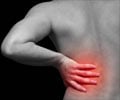Acupuncture seems to have received some official recognition now in the West. The UK’s National Health Service is to offer acupuncture as treatment for low back pain.
Such patients can also receive massages or exercises, according to the guidelines released by the National Institute for Health and Clinical Excellence (NICE). This is the first time that such complementary therapies get the seal of official approval.The watchdog said evidence suggests they help and will be cost effective if doctors stop providing less proven back services like x-rays.
The guidelines, which apply to England and Wales, say doctors should no longer offer spinal x-rays or MRI scans or injections of therapeutic substances into the back for non-specific low back pain.
Professor Peter Littlejohns, NICE Clinical and Public Health Director said, “Patients whose pain is not improving should have access to a choice of different therapies including acupuncture, structured exercise and manual therapy."
Patients who fail to benefit from their first choice may be offered another of these options, he said.
If that doesn't work, they can try an intensive treatment programme combining exercise and psychological therapy.
Advertisement
The Chartered Society of Physiotherapy welcomed the guidelines, as did Dr Dries Hettinga of the charity BackCare.
Advertisement
"This guideline will help patients understand what treatment and care can help them with their back pain and shows that there can be a positive outlook for treating this condition."
But others were critical of the recommendations.
Professor Edzard Ernst, an expert in complementary medicine at Peninsula Medical School, told BBC he was surprised by the guidance and particularly by NICE's recommendation of spinal manipulation.
"It feels as though the panel was biased in favour of this approach thus over-rating its effectiveness and under-estimating its risks which can be considerable. In my view, a critical risk benefit analysis of the most reliable data fails to come out in favour of chiropractic.
"We must remember that no optimally effective treatment for back pain exists."
Source-Medindia
GPL/L






